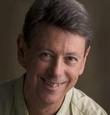We're pulled and prodded by financial pressures, commuter traffic, corporate policies, technology, advertising, politics, and the people we work with and live with. As well, internal forces yank the proverbial chains, including emotional reactions, compelling desires, "shoulds," and internalized "voices" from parents and other authority figures.
Sometimes these pressures are necessary, like a flashing light on your car's dashboard telling you to get gas. Even a broken clock is right two times a day.
But on the whole, these pressures are stressful and breed a sense of helplessness. Plus, a lot of the internal forces come from childhood, irrational fears, unfair self-criticism, ancient tendencies in the brain (e.g., its negativity bias), or the darker corners of human nature; acting out these forces is bad for us and others.
Giving oneself over to these pressures is un-free, like being a puppet tugged by many strings. It's the opposite of well-being to be "hijacked," "obsessed," "addicted," "plugged in," or "compelled" - which all imply mental servitude if not slavery.
On the other hand, a sense of inner freedom is a hallmark of emotional healing, mental health, self-actualization, and the upper reaches of human potential. For example, a common term for enlightenment is "liberation."
In plain English, we all know what it feels like to be pushed around . . . and what it feels like to have choices and be autonomous.
So, lately, I've been softly saying this phrase in my mind - the freedom not to - and seeing what happens. And what's been happening is great. A feeling of ease, of room to breathe, of not needing to jump to some task or to agree or disagree immediately with someone. A sense of shock absorbers between me and my emotional reactions, of not making a mess that I've got to clean up later, of not embarrassing myself, of not swapping a minute of pleasure for an hour of pain.
Being intimate with life while feeling free within it.
The Practice.
For one or more of the items just below, imagine what it would feel like for you to have the freedom not to:
- Press your point home
- Struggle to get someone to change his or her mind
- Have a second drink. Or a first one.
- Worry what other people think about you
- React to what is swirling around you
- Act on an impulse
- Get into an argument
- Be swept along by anger
- Identify with a mood or point of view passing through awareness
- Take something personally
- Take responsibility for the experiences of other people
- Criticize yourself for not being able to fit into a pair of jeans
- Resist what's unpleasant
- Drive toward what's pleasant
- Cling to what's heartfelt
For one or more of the items just above, imagine how your greater freedom would help others. Also, let others be freer themselves with you; give them room to breathe, time to think, and feel.
Faced with things that grab you in daily life, play with phrases like these in your mind: I'm free not to . . . I'm free not to __________ . . . I'm free . . . there is a choice . . . Slow things down, pause, buy yourself some time, that space of freedom between stimulus and response. If others are getting intense, try gently talking to yourself, reminding yourself: You are free . . . you can choose your response . . . they are over there and you are over here . . . there is freedom . . .
Notice what it's like to feel freer. Enjoy it. Let this experience sink in.
Be at peace.
Rick Hanson, Ph.D. is a psychologist, Senior Fellow at UC Berkeley’s Greater Good Science Center, and New York Times best-selling author. His six books have been published in 30 languages and include Neurodharma, Resilient, Hardwiring Happiness, Just One Thing, Buddha’s Brain, and Mother Nurture - with over a million copies in English alone. His free newsletters have 220,000 subscribers and his online programs have scholarships available for those with financial needs. He’s lectured at NASA, Google, Oxford, and Harvard, and taught in meditation centers worldwide. An expert on positive neuroplasticity, his work has been featured on the CBS, NPR, the BBC, and other major media. He began meditating in 1974 and is the founder of the Wellspring Institute for Neuroscience and Contemplative Wisdom. He and his wife live in northern California and have two adult children. He loves wilderness and taking a break from emails.

Post new comment
Please Register or Login to post new comment.